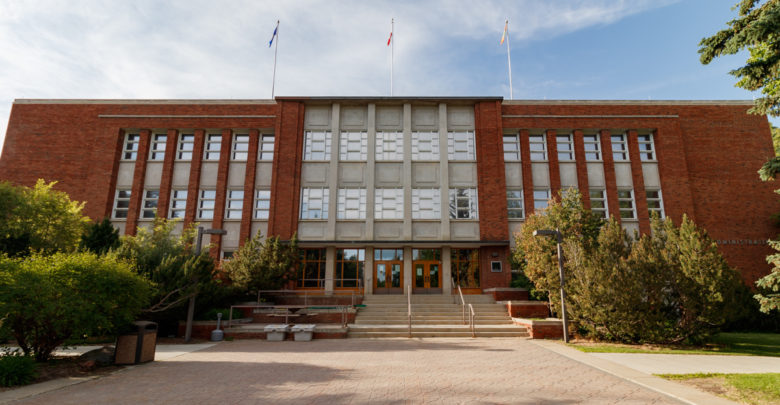 Christien Ford
Christien FordCould you imagine taking an exam on Christmas? Thanksgiving? Probably not.
After all, the Canadian government recognizes these as statutory holidays. This means that both students and staff at the University of Alberta are entitled to these days off. Coincidentally, many statutory holidays have roots in the Christian faith.
However, the same cannot be said for Eid Al-Fitr, a major Islamic holiday. In fact, writing an exam during this celebration is precisely the situation facing many Muslim students.
Of course, the university provides religious accommodations, which can reschedule exams and assignments to later dates. Problem solved, right? Well, not quite.
As someone who applied for these accommodations in order to reschedule her CMPUT 272 exam, I can tell you that the process is confusing, stressful, and feels generally inaccessible.
According to this year’s EDI Report, about 7.9 per cent of U of A students identify as Muslim. Despite this data, thousands of exams are taking place on April 21 and April 22. This exam season, those dates coincide with the expected dates of Eid.
In all fairness, students are encouraged to apply for religious accommodations at the start of the semester. Yet, time was not the issue that I found with this process.
Instead, the difficulty was in providing the required documentation, particularly the verification of my participation in the faith and a religious schedule.
Beyond producing a letter from the leader of a student’s religious community, which is not required but highly recommended, the university’s website states that “examples [of providing verification] include (but are not limited to): attendance records, baptismal or marriage certificate, bar/bat mitzvah records, membership card or certificate, letter from a non-family member in your faith/religious community.”
Now, most masjids, or mosques, do not carry attendance records. Clearly, they do not host baptisms or bar mitzvahs either. So, for the average Muslim student, the easiest option is to have their Muslim friend write them a letter, especially if access to their religious leader is difficult.
Luckily, I have close friends within the Muslim community who were helpful. But, what if someone was a recent convert or, did not have close ties with their community? There is no real acknowledgment of this potential difficulty from the university.
Even if you did have these connections, how would they know that you practice? After all, I could hang out at a masjid, and then go home to eat pork. Or, I could avoid masjids altogether but still pray at home. To “prove” your religion requires you to provide tangible evidence for an intangible belief system, tying your faith down to a potentially inaccurate religious performance.
Of course, such arguments would not help me reschedule my exam. Eventually, I sent in my application with the letters from my friends and a copy of a general Islamic calendar. I was approved, but there was an issue with the calendar. The email that the accommodations office sent clarified that I needed a schedule from my particular mosque. So, I sent the only schedule that my mosque provides during Ramadan and Eid, which looks a bit like this — note that the exact date of Eid is not clarified.
Because Eid follows the lunar calendar, which does not correlate exactly with the traditional Gregorian calendar, the dates are about 10-11 days earlier every year. While April 21 and 22 are expected for this year, the date will not be confirmed until the first sighting of the crescent moon on the night before. As such, it can be difficult to provide definitive proof of an exam conflict, thereby making it difficult to reschedule an exam months in advance.
Additionally, because Muslim communities are relatively small, most information travels by word of mouth. Eventually, I had to ask the Imam at my mosque to personally write a letter on my behalf, specifically to confirm the dates of April 21 and 22. My parents heavily facilitated this request, who had close connections with the masjid’s executive committee. This is an opportunity that many other students may not have.
Like many other Muslims applying for accommodations around this time, I was also studying for exams and trying to finish final projects. All the while, I did not know whether I would be able to spend Eid with my family — a feeling typically unfamiliar to students of the religious majority.
As a result, my mental health suffered throughout the process. Of course, this all begs the question: can the university do better? Or, perhaps more importantly, are they willing to do better?
Religious accommodations exist, but the application process burdens students as much as it relieves them. If I celebrated Christmas or Thanksgiving, I would not have gone through any stress at all. Instead, I had to fill out a seven-page application form, somehow verify my private religious practice, and provide Gregorian dates for a lunar-based holiday. In the end, I was granted a single weekend to spend with my family before my next exam.




